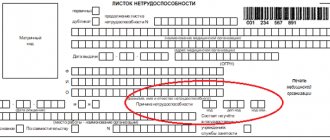In modern Russian society, changing jobs has become not such a troublesome undertaking as it was ten years ago. Managers and recruiters now consider it normal for an employee who has gained sufficient experience to leave and look for a better vacancy. Therefore, the question of the reasons for leaving a job is now treated less biasedly. If you correctly fill out the appropriate item in your resume, you are most likely to get the desired position.
Reasons for dismissal most often cited on resumes
In 98% of cases, employees quit of their own free will. At least that’s what’s written in the work books.
And this happens because the company will face a fine and increased attention from the labor inspectorate for dismissal under the article.
But you understand that recruiters won’t give up so easily.
It’s not for nothing that we, after all, compared employment to dating.
The reasons for dismissal on HR resumes are most often seen as:
- qualifications turned out to be excessive for job responsibilities;
- the work did not bring moral satisfaction;
- a “ceiling” in development has been reached;
- career growth within the company is impossible;
- initiatives did not receive management support.
But these are all general phrases - get ready for additional questions.
Answer questions in such a way that HR has no doubts about your personal and professional qualities.
About: how to behave during an interview so that they call you back
- read here.
From your answer, a good interviewer will see your motivation, ability to resolve conflicts, and knowledge of business etiquette.
Some HR draw conclusions about the candidate’s loyalty at this stage, which is not entirely correct, but nevertheless...
If the recruiter doubts your sincerity, he may call your former boss
Now do you regret that you sent the director when you quit?
2
Change of activity
Sometimes applicants want to radically change the scope of their work or change the specifics. In this case, it is better to formulate the reasons for dismissal as follows.
- I want to change the direction of my activity. The company I currently work for is exclusively engaged in trade, and I want to try to apply my knowledge in production.
- Change of type of work, team, direction of the company. Doing the same thing for 10 years, even with a gradual expansion of responsibilities, leads to automatic performance of the assigned functions. Because of this, there are no prospects for professional and personal development.
- Professional and career growth. At the current place of employment there is no prospect of changing the direction of activity and opportunities for career growth.
- Expansion of professional responsibilities. I want to use my experience, skills and knowledge not as a narrow specialist, but as a generalist professional.
Good to know: Objectives in a resume when applying for a job
Perhaps the recruiter will want to clarify and ask you to tell, for example, what specific professional responsibilities you have grown beyond.
How to correctly write the reason for dismissal
So, the reason for changing jobs in the resume: what to write and how to write it?
Let's remember the purpose of the resume:
| To interest the personnel officer, to convince him of superiority over competitors |
A well-written resume describes competencies and skills - but remember to emphasize the skills and experience that are relevant
future responsibilities.
The general rules for resumes and cover letters apply here:
Laconic-simple-competent.
Do not try to confuse the recruiter with complex terms or formulations.
Although initially the resume does not contain a block about your previous place of work, you can rest assured that the recruiter will certainly ask you about it.
Therefore, if you are determined to talk about your previous relationships, use the “work experience”
, line after job responsibilities.
Just let your reason be:
- believable
- specific,
- without vague wording.
But when the recruiter asks you to talk about this reason during the interview, then you will tell your sob story about a failed relationship in three acts.
Wherein:
- do not focus on negative aspects,
- do not try to prove that you are being treated unfairly,
- be tactful.
If you blame your past employer for your failures, the recruiter will conclude that you don't know how to get along with people.
How to change jobs without headaches
- look here.
3
Why do you need information about your reasons for leaving your previous job in your resume?
Evaluating an applicant begins by reviewing the information about him or her in the resume. Having studied the data in it, the employer should get a first impression about the person looking for a job. It contains the following information:
- About the level of education;
- About previous companies - employers;
- Labor functions performed;
- List of tasks to be solved and degree of responsibility for the results;
- Achievements of the candidate.
One of the standard items that are proposed to be filled out in templates on websites or in legal databases involves entering information about previous places of work. At the same time, clarification of the reasons for leaving, as a rule, is not provided for in “standard” forms. However, for the employer, this information is extremely important, since it allows you to assess the candidate’s priority goals, his possible problems in establishing relationships, excessive conflict or inflated self-esteem.
A correctly formatted resume, including the reasons for dismissal, increases the chances of getting a job.
Often dismissals occur at the initiative of the employer and their reasons can be either trivial lack of professionalism or more serious offenses, for example: theft, forgery or fraud. Based on this information, a psychological portrait of the candidate is compiled. It is possible that the factors that caused the departure from the previous position are also present in the company offering a new position and the dismissal scenario may be repeated.
Neutral reasons for dismissal: what are they?
Reasons related to life circumstances are considered neutral.
For example:
- Moving
- Having a child, starting a family
- Work schedule does not suit
- Staff reduction
- Change of management team in the company
- The employer did not keep his promises
Sometimes the objective reason for changing jobs in the resume overlaps with the subjective one
.
For example:
- The salary is too low
- Desire to change specialty
- Unacceptable working conditions
Why are these subjective reasons?
Because the recruiter will immediately have a question:
What, before the working conditions were normal, but now suddenly something has changed?
It’s better not to talk about such things so as not to drive yourself into a trap.
Sometimes an employer fires an employee and makes an entry in the work book “at his own request.” However, the actual reason was absenteeism, tardiness, and violation of labor discipline. We do not encourage you to lie on your resume, but in this case it is better not to talk about the reason for your dismissal. Of course, unless the recruiter asks you directly about it.
Salary amount
– a frequent reason for changing jobs. If your requirements are objective (the average wage level for similar positions is higher, there are more job responsibilities), then the employer will treat the situation with understanding.
“The recruiter will not hesitate to ask why you are suddenly no longer satisfied with the salary level and what salary you expect in the new place. Prepare in advance for this question, analyze the market and soberly evaluate yourself by preparing a “fork” of your desired salary.
What should you not write?
It is better not to write on your resume :
- "Staff reduction" . The fact is that during downsizing, management tries to retain valuable employees and fires not the best personnel. Of course, this does not always happen and good employees are laid off simply because of the need to save the organization’s budget. But many recruiters often assume the first option;
- " Incompetent management ." Some people make the mistake of indicating something like “there have been repeated violations of employee rights at the enterprise.” And even more so, you should not write outright negativity about your superiors. The recruiter will think that the applicant is too talkative and may spread negative rumors about him in the future. This option is acceptable in principle. But it is still better not to indicate it if the employee has little experience in his specialty;
- “ The need to regularly attend courses or training .” Indeed, the management of some companies constantly sends their employees to various trainings. But the recruiter may suspect that the applicant is simply lazy to develop as a professional;
- “ I wanted a change in my life .” In one form or another, this reason is indeed rarely indicated in the resume. It is unlikely that a new employer will be happy if, during a crucial period, when all employees will need to be actively involved in an important project, one of the employees again “wants change.”
When filling out a resume, an important role is played by the paragraph on the motivation for leaving the previous position. In most cases, it is better to refer to family circumstances, the closer location of the new place of work and the desire to grow up the career ladder.
Positive reasons for changing jobs
Along with neutral reasons, there are also those that characterize you on the positive side.
These are reasons that speak of motivation, career or professional growth, and the desire to learn new things.
| Example: |
| Impossibility of further career growth; Inability to develop; Desire to explore new markets and technologies; The company is not growing in the market. |
Be sure to mention this.
This way the recruiter will understand that for you the job is not just “money”
, but professional interest.
That is, he will have no doubts about your motivation, potential and ability to learn.
5
Wrongful dismissals
Fired from your job without reason? What to do? Indeed, not all employers comply with the law; there are many cases of wrongful dismissals. For such cases, there is a clear algorithm of actions for the citizen.
Can they be fired without reason? No, the Labor Code of the Russian Federation prohibits dismissal without reasons. The Labor Code of the Russian Federation has a clear list of grounds for dismissal - Article 77 of the Labor Code of the Russian Federation.
When fired without cause, it is necessary to protect labor rights. To protect rights, a labor inspectorate, prosecutor's office and court have been created. All these bodies are competent to consider issues of illegal dismissal of citizens from work. In order to contact the labor inspectorate, you must file a complaint. Its structure is indicated on the website: you need to fill out the fields of the complaint and send it online to the labor inspectorate.
What to write on your resume if you were fired due to an article
If you were fired under an article - we sympathize
. Getting a job will not be easy and lying about it during an interview is useless.
The recruiter will still see the employment history and contact the previous employer.
Therefore your tactics
– clearly explain the reasons for parting with the employer, talking about this at the interview:
| think through and clearly explain what specifically led to the dismissal; find arguments in favor of mitigating guilt; try to convince the interviewer that you realized you were wrong (if you were wrong, of course) and repented of your wrongdoing, tell us what lesson you learned and how you will now behave in a similar situation. |
It’s clear that you can’t tell about this in two lines of your resume, but you have a cover letter...
If you are sincere
, you will gain the trust of the employer, even if you were fired under the article.
6
What to do if you quit after a month
The situation when an employee submits a resignation letter after just one month occurs quite often. You need to understand that such an entry in the work book can scare away a potential employer and cause a refusal to accept the position . In order to reduce the risk of such a situation, it is best not to indicate the reason for termination of the employment relationship.
You can try to explain the true motives for changing jobs during the interview. As a rule, such people talk about reorganizing the company or changing job responsibilities after completing the probationary period. When talking about the reasons for dismissal, you need to mention the former management as correctly and restrainedly as possible.
Reasons that are best kept silent
Recruiters select personnel based on competencies and look at business and human qualities. A new employee should easily fit into the team and be involved in the work process.
Those who will win here are those who remain cool in the face of conflict, are friendly towards others, and are pleasant in communication.
But those who believe that the recruiter does not care about your previous working relationships will lose:
| Inappropriate reasons for dismissal | What does the recruiter think about it? |
| Conflicts within the team | It’s unlikely that everyone participated in them except you |
| Doubts about management competence | You are disloyal to your superiors |
| Envy of colleagues | You are prone to conflict |
| Overtime work | You will also quit your new position, because overtime is everywhere |
| Frequent sick days | if a person was often sick before, he will continue to get sick in a new place. |
| Frequent absences for family reasons: illness of relatives, family matters, moving | There is no reason to think that you will behave differently in a new place |
If you want to get a place, just rephrase your reasons:
neutral again.
reasons and find the one that best describes the situation.
And don’t try to push for pity or seek justice at the interview - this will lead to refusal.
7
Employee initiative
The most peaceful way to end an employment relationship is the employee’s initiative to leave work. The reasons for voluntary dismissal may be related to the citizen’s professional activities or personal reasons. The employer specifies Article 77, 1, clause 3 as the basis for dismissal - at his own request. But the reasons for leaving a job voluntarily may also be related to other circumstances in the employee’s life.
Usually, the employer has the right not to let the employee go without working for 2 weeks. Are there any reasons for dismissal without working through the Labor Code of the Russian Federation? Yes, an employee can be fired without working if there are good reasons for this. In other situations, he is required to work at the enterprise for 2 weeks so that the employer can find a replacement for him. Thus, the reasons for voluntary dismissal without work in all cases can only be valid.








